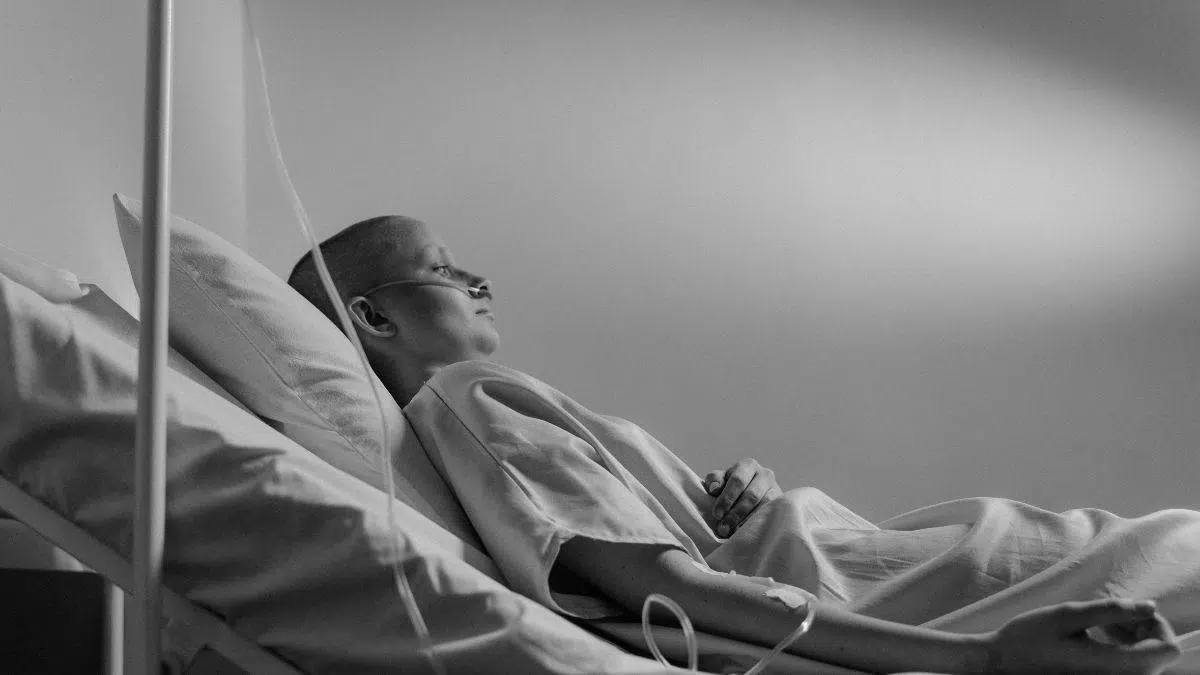Navigating the Path Ahead: What to Do If You’ve Been Diagnosed with Cancer

Receiving a cancer diagnosis is undoubtedly a life-altering moment, ushering in a cascade of emotions and uncertainties. However, it’s important to remember that a diagnosis is just the beginning of a journey, and there are proactive steps you can take to navigate this challenging path.
If you’ve been recently diagnosed with cancer, it’s likely you don’t know where to start tackling the issue. Should you head for the most aggressive treatment? Setting safeguards for the future? Self-care? The six steps below will help you face the challenges ahead with resilience and hope, without losing track of your final goal: that of long term remission.
Step 1: Have an Honest Talk With Your Doctor
Many of us have a series of immediate, if stereotypical associations to the word “cancer”. However, cancer is not a single disease, but a family of diseases that are almost as unique as the patient. As a result, what you’ve seen in the media, or even with loved ones, may not necessarily be applicable to you. And yet, this information will be key in order to organize the steps that come later.
The best way to gain an accurate picture of your reality is to have a frank discussion with a trusted doctor. Consider prioritizing the following questions:
- What type and stage of cancer do I have?
- If we don’t know the stage or type, what do we need to do to find out?
- What are my treatment options?
- What side effects and risks does each option carry?
- What is the expected survival or outcome for my type of cancer?
- What would “full recovery” look like in my case? Will I be the same as before? Will I need regular monitoring (e.g. yearly MRI scans)?
- How will my treatment affect my daily life? Will I be able to work, drive, travel, or socialize? Any day or only on certain days (e.g. between chemo sessions)?
- Are there new treatments being researched for this type of cancer?
- Are clinical trials an option for me?
Step 2: Assemble a Team of Experts
Cancer is a complex disease, often affecting more than one organ or bodily process. In addition, many treatments will also impact your diet, lifestyle, or mobility.
As a result, cancer is best tackled by a multidisciplinary team, composed of doctors from different specialties, as well as other healthcare professionals.
During the early stages of treatment, this will involve at least an oncologist and a surgeon. Eventually, you may need to involve an immunologist, dietician, a physical therapist, a counselor, a home care nurse.
The process of researching, locating, and scheduling appointments with so many people can be taxing, especially when you’re already preoccupied due to a life-changing event. Try asking your primary care physician or family doctor for referrals first they may have good insight on other professionals in your area.
Alternatively, you can also try going through a medical concierge or case management service. They will have their own network of trusted physicians, and can take care of referrals, insurance paperwork or transport for you.
Step 3: Build and Nurture a Support System
Cancer can be an isolating experience. Friends and family often mean well, but they may not know how to help, or feel awkward navigating the fine line between being available and being invasive.
Here, it helps to be direct with what you want and need. Surround yourself with people, keep them updated about your progress, and be candid about your needs whether emotional, practical or logistical.
At the same time, take time to connect with others who have faced similar challenges. Many of your friends may have seen cancer in their family before. Finally, local support groups can help you meet other cancer patients, who will have a more intrinsic understanding about the challenges you’re facing.
Step 4: Research All You Can
Cancer comes with its own lingo. Unless you already have a healthcare background, you may be confused by the different factors that shape treatment outcomes or their side effects. This is often more acute when dealing with newer or experimental therapies, which often have complex mechanisms of action.
When this happens, it would appear easy to simply take a step back, and rely on the simplified brochures or leaflets you find in the hospital’s waiting room. But this leaves you at risk of misinterpreting a lot, or even of overlooking powerful alternatives like immunotherapy.
Take time to educate yourself about your specific type of cancer, and how each treatment avenue works. This will empower you to actively participate in your own healthcare journey.
Step 5: Prioritize Self-Care
While facing cancer is undoubtedly a challenging journey, maintaining a positive mindset can have a profound impact on your overall well-being. Celebrate small victories, focus on the present moment, and set realistic goals for yourself. Embracing hope and positivity can serve as a driving force, helping you navigate the challenges of cancer with resilience and determination.
This is why maintaining your physical and mental well-being is crucial throughout your cancer journey. When possible, try to preserve healthy habits such as regular exercise, and a balanced diet. This will help your body build extra resilience for the not-so-good days. When these roll around, then it will be time to delve into your reserve of self-kindness. Get extra rest and keep your comfort items at hand.
If you begin to fret or feel anxious at approaching appointments or reviews, explore relaxation techniques such as mindfulness meditation. Specialized counseling services can help manage stress and improve your emotional well-being.
Step 6: Recruit Practical Help
The cancer recovery journey is full of ups and downs, and often, your sense of independence can take a sharp dive in a matter of days only to recover a few days afterwards. Often, these “slumps” tend to follow a pre scheduled chemotherapy or radiotherapy session, but they can also happen from accumulated stress or a passing virus.
These are somewhat unavoidable, but you can prepare for them ahead of time. Make a list of the different tasks and errands that you need accomplished, and find a backup plan for them. This may look like:
- Choosing a meal-delivery service for when cooking
- Calling a friend to pick you up when you can’t drive by yourself
- Keeping a trusted relative on call to help with your kids or pets
- Recruiting someone to remind you of key deadlines and due dates
Final Thoughts
Receiving a cancer diagnosis is undeniably daunting, but it’s essential to remember that there is hope and support available. By following these six steps seeking expert guidance, building a strong support system, educating yourself, prioritizing self-care, communicating effectively, and embracing hope you can face the challenges ahead with resilience and determination. Remember, you are not alone on this journey, and there is a path forward filled with possibilities for healing and recovery.




